Strength and resilience: Nupqu shares the same name and characteristics as a black bear
Nupqu Resource Limited Partnership operates across multiple divisions, including environmental, forestry and archaeology
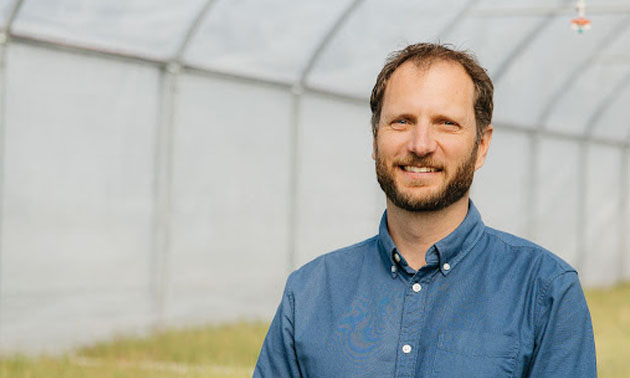
Aaron Higgs, president of Nupqu Resource Limited Partnership, has seen the company close to double in size during his seven-year tenure. Nupqu is 100% Indigenous-owned by the local Ktunaxa Nation and has offices throughout the Kootenays in Cranbrook, Fernie and Castlegar. — Photo by Logan Shellborn
Black bears generally keep to themselves unless they feel the need to make themselves known. In much the same way, Nupqu Resource Limited Partnership is comfortable working behind the scenes, primarily focused on resource consulting and contracting. This Indigenous-owned company chose the name Nupqu—the Ktunaxa word for black bear—as a way to underscore its strength and resiliency as a business.
Nupqu Resource Limited Partnership operates across multiple divisions, including environmental, forestry, archaeology, and safety services. They have offices in Cranbrook, Fernie and Castlegar, with each location focusing on specific areas of work.
Specializing in natural resource management consulting and contracting services within the Ktunaxa traditional territory, Nupqu, associated with Ktunaxa Enterprises Ltd., is owned by all communities of the Ktunaxa Nation.
Nupqu—a major employer in the region
Heading up Nupqu is Aaron Higgs, the organization’s president for the last seven years. The company has grown significantly during his tenure, doubling in size to approximately 100 employees.
“We’re a fairly large employer for the region,” Higgs said. “We’re definitely proud of our growth and the work we do. The majority of our work is in the Elk Valley within the coal mines focused on environmental services. From there, we work with a lot of industry players—Fortis, BC Hydro, TC Energy—who have operations in the area. And then after that, it’s a plethora of clients from municipalities, regional districts, local landowners, exploration companies—a whole mix.”
Like black bears, Nupqu has been around for a while in one shape or another. Originally, Nupqu started in the 1980s within the initial Ktunaxa/Kinbasket government that existed back then. At the time, it was more forestry-related and provided employment opportunities for local community members. The organization has evolved since then. In 2009, it was incorporated as a business under the current name. In 2018, Nupqu, along with the entirety of the Ktunaxa Holdings Limited Partnership group, went through the process of reestablishing its composition as it was intended to be: as a multi-layer structure that’s separated from politics, focused on a strong mandate of business and profitability.
“Even though the structure was there from the start, from a legal perspective, it wasn’t there from an operations perspective,” Higgs said. “Initially when I started, Nupqu had a board of directors made up of the ownership representatives.—that representation board has gone up two levels. It provides direction and shareholder expectations to the parent company.”
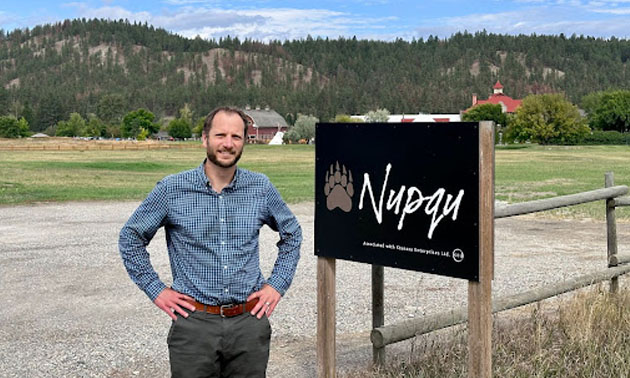
Aaron Higgs, originally from Vancouver, now enjoys the view from his office just outside the ?aq'am community north of Cranbrook, B.C. — Photo by Kerry Shellborn
Transitioning from Vancouver to the Kootenays
Besides being a president, Higgs is a geologist by trade. Prior to joining Nupqu in 2016, Higgs worked for a local exploration company, Eagle Plains Resources, in Cranbrook for 11 years as a project manager and geologist. Before that, Higgs lived in the Lower Mainland. Like a black bear searching for a place to settle in and hibernate, so too was Higgs searching for tranquility that couldn’t be found in a major city.
“It’s an easy transition when you come from Vancouver,” said Higgs. “I was looking for something quieter and closer to the woods and mountains and this is a much better place for that. Coming from Vancouver, there’s some nature around, but not the same experience. We have a trailer and we’ve been camping the last three years and it’s amazing. I travel around the East Kootenay, West Kootenay, lakes, mountains, forest—just beautiful!”
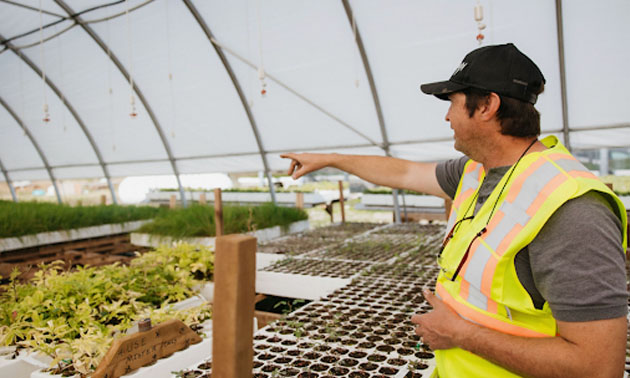
Gerald Puhach, operations manager of Nupqu’s Native Plant Nursery oversees 2.5 million seeds a year, each one collected by hand in the Ktunaxa Traditional Territory. — Photo by Logan Shellborn
Native plants—a growing concern
Just as climbing is second nature to a black bear, Nupqu as a business is ascending in renown and profits, especially in the native plants division that joined Nupqu in 2020. The company has a native plant nursery that has experienced significant growth, driven by increased demand for native plants due to reclamation efforts and climate change adaptation. They produce native plants acclimatized to the local region, emphasizing biodiversity.
“The demand is huge,” Higgs said. “We know that from a reclamation standpoint, climate change, adaptation, all those pieces are on the top of people’s minds and native plants are a big component of that. We’ve grown the business a lot over three years. When we took over, we were doing a half million in revenue, now we do over three million.
“A lot of the work we do is long-lasting. Reclamation work, monitoring/compliance, all those kinds of things that don’t go away once the mine stops operating—those continue for generations to come. Those are the strategic areas we focus on, hence the native plant nursery which we operate, too, and which is a big component of our growth and we’re definitely excited about where that can go. In terms of reclamation and being involved and working on the land, that’s a core component of our work.”
Nupqu is currently working on many capital projects that are being completed within the Ktunaxa traditional territory through Teck Coal, BC Hydro, Fortis and TC Energy.
“There’s a lot of big projects going on and they all have reclamation needs,” said Higgs. “There’s a bit of brand recognition now where people in this region doing big projects think of Nupqu. We’re starting to be known as a distributor and knowledge-holder for native plants. We don’t have the same scale as other nurseries, but we have really good connections and a network that we can source from. So that is definitely an area that has been part of the growth.”
Nupqu is also involved in Firesmart initiatives and helps communities develop plans to reduce fire hazards in the region, emphasizing the importance of controlled burns to maintain grasslands and reduce fuel buildup.
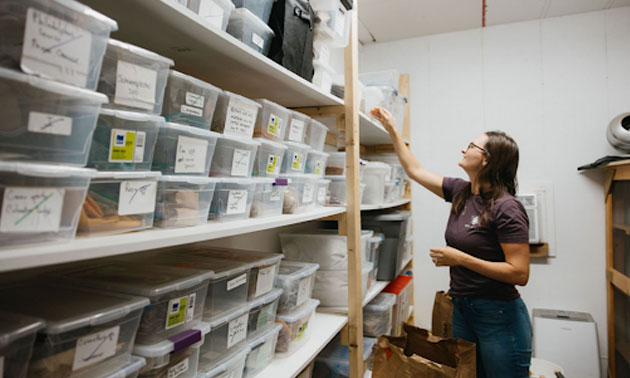
Melanie Redman, a Nupqu employee, catalogues and stores dozens of native plant seeds. Native seeds are much tougher than vegetable seeds grown in gardens and sometimes need to be refrigerated for months in order to have them germinate. — Photo by Logan Shellborn
Nupqu’s biggest challenge is finding skilled workers
Higgs recognizes that one of the main challenges facing Nupqu is finding skilled workers.
“The labour market is pretty tough, it’s a big challenge for us,” said Higgs. “We’re a labour company. In the end, we provide technical and professional labour services—even producing goods at the Native Plants Nursery requires a significant labour component."
“We have a Ktunaxa-preference policy: if we have two candidates that are the same, we’ll go with the Indigenous person every time,” said Higgs. “But they have to have the same skill sets and education. They have to be a fit for the job, otherwise you can’t operate successfully. We hire typically 20 people every year at the start of the field season, then throughout the year there’s always openings that come up.”
Interested applicants can email Nuqpu’s Human Resources department at [email protected].
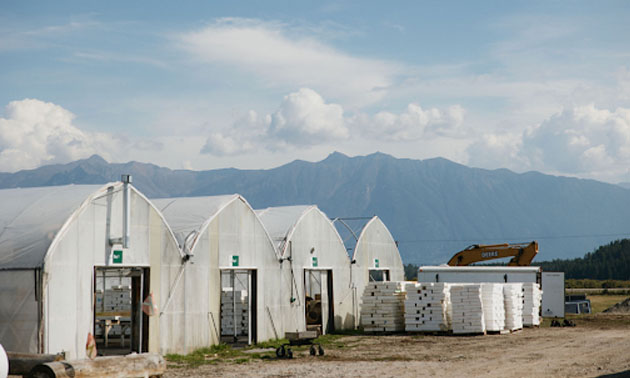
— Photo by Logan Shellborn

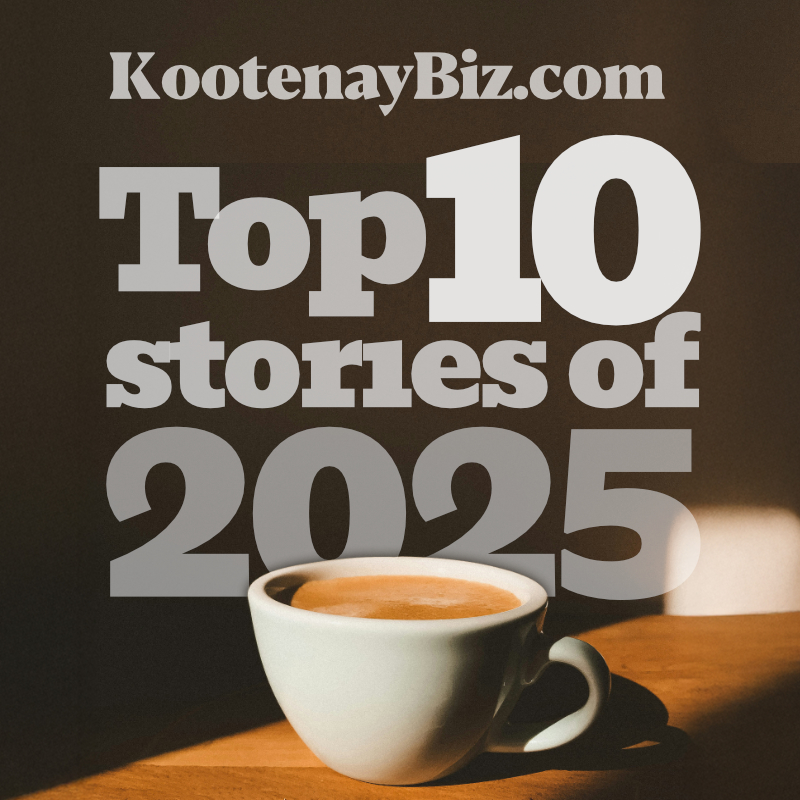
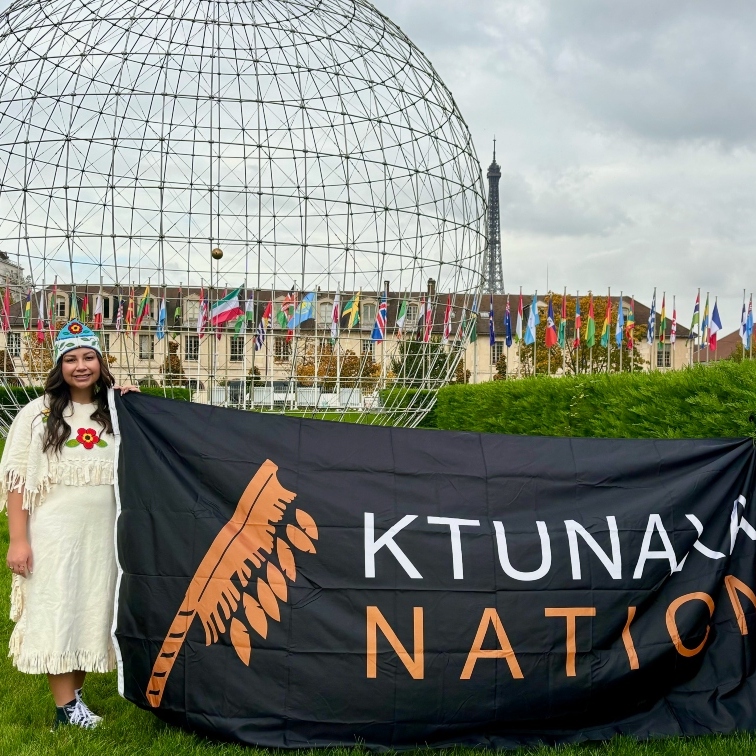
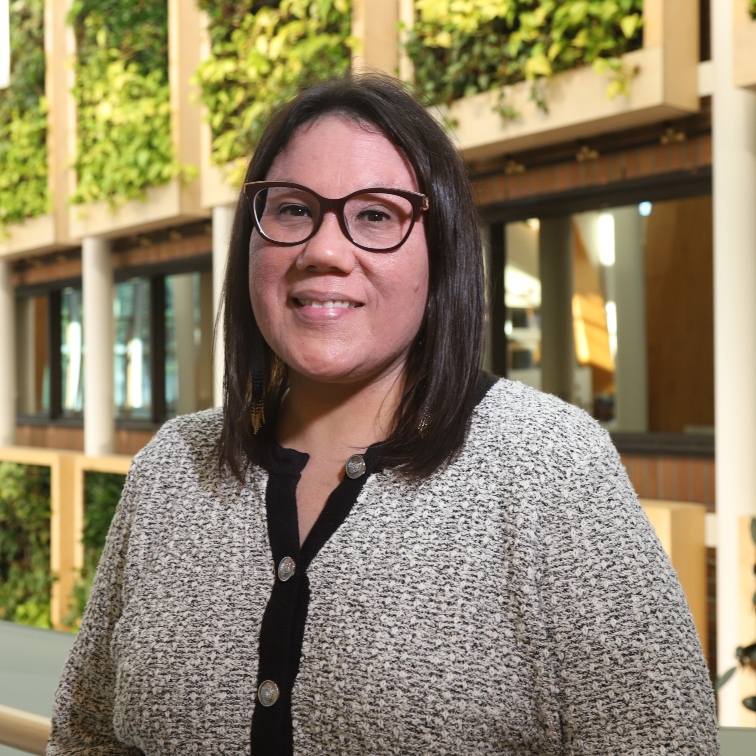

Comments